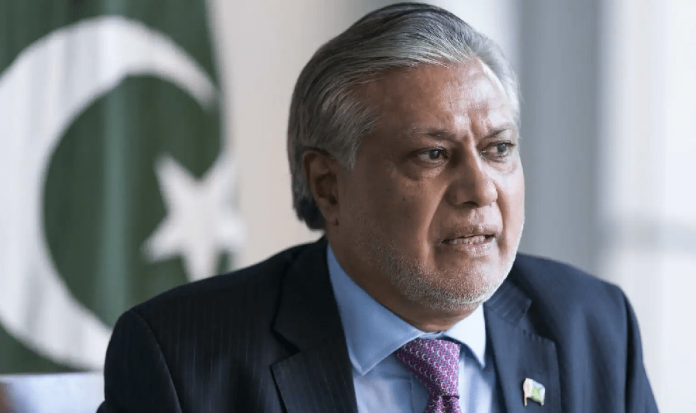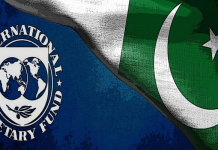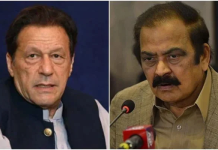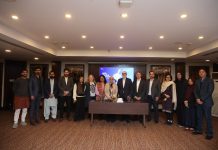ISLAMABAD, JAN 02 (APP/DNA):Deputy Prime Minister and Foreign Minister Ishaq Dar on Thursday said that the government was making all-out efforts to accomplish Pakistan’s journey from nuclear to economic power and regain its lost stature in the world.
The deputy prime minister, addressing a news conference, gave a roundup of the government’s efforts to bring economic stability and enhance Pakistan’s diplomatic footprints through bilateral and multilateral engagements with the latest one being the beginning of country’s two-year term as non-permanent member of the United Nations Securit Council for years 2025-26.
Highlighting the high-level exchanges and Pakistan’s participation in and hosting of international events, he said the incumbent government had strived to enhance Pakistan’s diplomatic footprint during its first 10 months, which led to the burying of the impression of an “isolated Pakistan.”
The deputy prime minister said that the PML-N-led coalition government inherited huge challenges of around 25 percent policy rate, slow GDP growth and skyrocketing inflation. However, the government’s prudent economic policies downed the policy rate to 13 percent, inflation below 5 percent, and remittance, foreign exchange reserves and exports on the rise.
Ishaq Dar told the media that following Prime Minister Shehbaz Sharif’s visits and effective engagements with the leadership of the UAE, Saudi Arabia, Kuwait and Azerbaijan, there were indications of around $29 billion investment in coming to Pakistan.
He highlighted Pakistan’s participation in the Nuclear Energy Summit, World Economic Forum in Saudi Arabia, OIC summit in Gambia, the visit of Saudi foreign minister, Iran’s president late Ebrahim Raisi and his foreign minister, and that during all interactions Pakistan effectively raised the issue of Kashmir and ongoing Israel’s genocide of Palestinian population. Pakistan’s consistent efforts at the OIC summit in Gambia led to the appointment of OIC envoy on Islamophobia.
He said Pakistan was among the very few countries that strongly advocated the implementation of UN resolutions on Palestine and ICJ ruling on the issue, besides condemning Israel’s barbarism against innocent people.
He said that besides hosting Palestinian medical students, Pakistan also dispatched relief aid to Gaza, Syria and Lebanon.
The deputy prime minister’s presser also encompassed Pakistan’s participation in D-8 summit and appointment of Ambassador Sohail Ahmed as its secretary general, PM Shehbaz’s visit to China and Kazakhstan, participation in UN General Assembly session, where he highlighted Kashmir and Gaza issues besides interacting with dozens of world leaders.
Regarding his multiple interactions with UK Foreign Secretary David Lammy, he said that a UK monitoring team was about to visit Pakistan in January which may follow the resumption of PIA flights to the UK, as the EU had already lifted the ban on the national flag carrier.
He said Pakistan’s hosting of SCO summit was “well-received and well-praised” and informed the media that the World Muslim League would soon hold an event on the girls education at Jinnah Convention Center to be attended by 50 delegates from OIC states including 30 ministers.
The deputy prime minister also mentioned his upcoming visit to Malaysia and Bangladesh in February.
He said as Pakistan had started its two-year term as a non-permanent UNSC member, the country would make efforts to enhance diplomatic outreach and work for dispute resolution and upholding the UN charter.
Responding to a question, Ishaq Dar told the media that Pakistan had eliminated terrorism in 2018 but it resurfaced due to the previous government’s policy of opening the Afghan border and releasing the hardcore criminals. We want good trade ties with Afghanistan as it will pave the way to connectivity with other neighborly states like Uzbekistan.
Regarding trade ties with India, he said “It takes two to tango” calling upon India to create an environment to help improve the relations.
Later, responding to a question about a Washington Post story on Indian involvement in killing foreign nationals, Foreign Office spokesperson Mumtaz Zahra Baloch said Pakistan had already expressed concerns about the Indian involvement in extraterritorial killings, not only in Pakistan but also in other countries.
She said Pakistan desired good ties with Afghanistan but at the same time, Pakistan’s people and the security forces were capable enough to thwart any internal and external threat.
To another query, she clarified that Pakistan’s ports including Gwadar Port were purely meant for trade and development and the country had no design to offer any military bases to any foreign government.

















